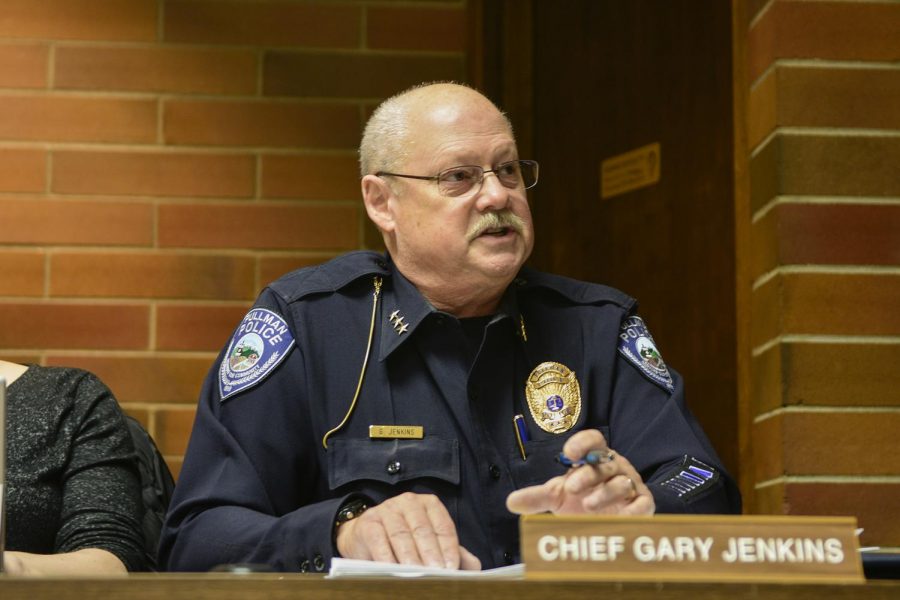Local police address crime in wake of COVID-19
Crime dropped during shutdown; less domestic violence cases this year than 2017, 2018
BONNIE JAMES | DAILY EVERGREEN FILE
Gary Jenkins, Pullman chief of police, said the department has minimized contact officers have with residents by writing tickets for some violations instead of making arrests.
May 22, 2020
Crime in Pullman dropped sharply between March and May of this year, according to Gary Jenkins, Pullman Chief of Police.
Jenkins said the department saw nearly a 29 percent drop in crime during the COVID-19 shutdown.
Some reports mentioned concern about a rise in domestic violence cases. Jenkins said the department saw 33 domestic violence cases from January to May of this year, whereas the department saw over 50 cases from January to May 2017 and 40 cases from January to May 2018.
During the outbreak, Jenkins said the department also slightly rethought its arresting procedures to lower the chance of infection for both jail and office staff. During the shutdown, the department minimized the contact officers had with residents by writing tickets for violations that are not of public safety concern.
A WSU study led by epidemiological researcher Eric Lofgren tentatively found that densely-populated local jails can lead to the risk of outbreaks in the general public.
Lofgren, assistant professor at WSU and infectious disease epidemiologist, said he started his career in public health. He studies “highly-structured” populations. This includes hospitals and universities, which have dense groups of people living together at one time.
In the study, which has not yet been peer-reviewed, researchers found that jails have outbreaks early in pandemics. Considering the goal of “flattening the curve,” this finding was concerning, Lofgren said. Those sent to jail are meant to return to the general public and could infect many more people.
“What we saw is that one of the things that is the most effective is just genuinely not sending people to jail,” Lofgren said, specifically for low-level, nonviolent crime.
Jenkins said Pullman PD often considered alternatives to jail time for citizens guilty of nonviolent crime even before the pandemic.
“We are still making arrests, but we’re also being very judicious and making decisions on when we’re going to make an arrest,” Jenkins said.











